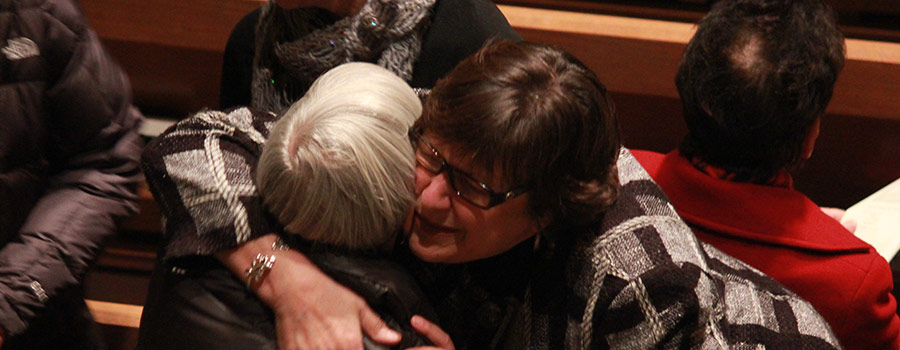Compassion Cultivation Training – Spring 2017

Caregivers Forum – Is It Compassion Fatigue?
February 24, 2017
March 2017 E-News
March 7, 2017
Is it really possible to choose empathy and compassion rather than defaulting to ‘reactivity’ and shutting-down or burning out when confronted with life’s inevitable challenges? In this 8-week course you’ll learn new skills to cultivate compassion, discover what blocks it and new ways to access and respond to the unending demands and needs that are increasingly a part of our professional and ‘daily life’ experience.
Instructor: Robert Cusick
Dates: April 18 – June 6, 2017 (Eight Tuesdays from 7 – 9 PM)
Location: Palo Alto (Kara) | 1140 Cowper St | First Presbyterian Church, Classroom #3
Course fee: $395 | $325 (Early Registration price through April 8)
CCT (Compassion Cultivation Training™) is an 8-week course developed in the Center for Compassion and Altruism Research and Education (CCARE) at Stanford University School of Medicine. It was designed to cultivate the qualities of compassion, empathy, and kindness in and for oneself and others. It combines traditional contemplative practices with contemporary psychology, scientific research and experiential processes that can help you to both allow and understand the many different ways compassion and empathy can be experienced — in order to lead a more compassionate life.
About the Instructor
 Robert Cusick trained at Stanford University in the Center for Compassion and Altruism Research and Education (CCARE) and has studied extensively in a number of different contemplative traditions. He is a Certified Stanford CCT (Compassion Cultivation Training) Instructor and teaches at Stanford University, the University of CA, San Francisco (UCSF), Kaiser Hospitals and in multiple other venues. As a former monastic, he ordained in Burma under the renowned meditation master, Venerable Pa Auk Sayadaw, and trained with him from 2003 to 2012. He provides bereavement support for adults and children at Kara where he also teaches and co-facilitates ongoing trainings for Adult Services, Youth & Family Services and for the Caregiver’s Forums. Robert also sits on the board of directors of the Sati Center for Buddhist Studies.
Robert Cusick trained at Stanford University in the Center for Compassion and Altruism Research and Education (CCARE) and has studied extensively in a number of different contemplative traditions. He is a Certified Stanford CCT (Compassion Cultivation Training) Instructor and teaches at Stanford University, the University of CA, San Francisco (UCSF), Kaiser Hospitals and in multiple other venues. As a former monastic, he ordained in Burma under the renowned meditation master, Venerable Pa Auk Sayadaw, and trained with him from 2003 to 2012. He provides bereavement support for adults and children at Kara where he also teaches and co-facilitates ongoing trainings for Adult Services, Youth & Family Services and for the Caregiver’s Forums. Robert also sits on the board of directors of the Sati Center for Buddhist Studies.



